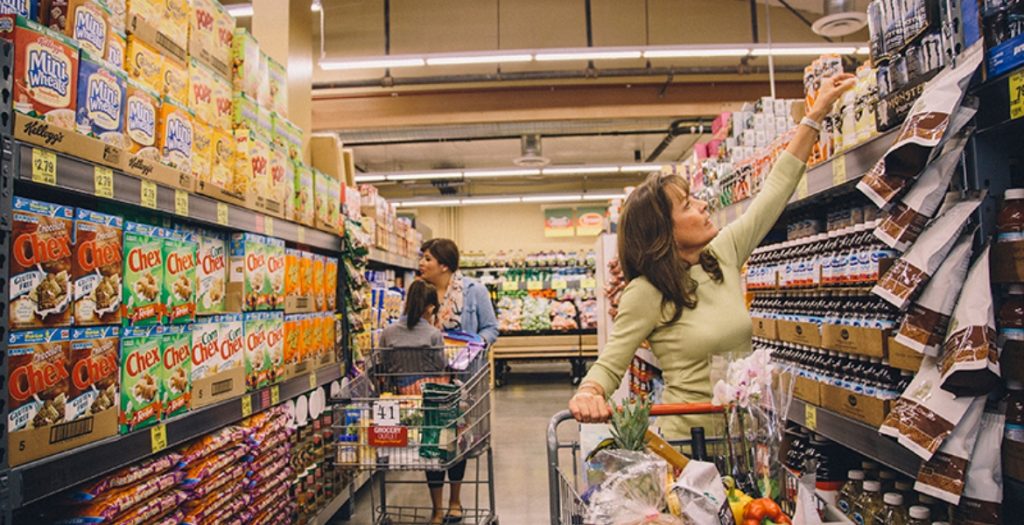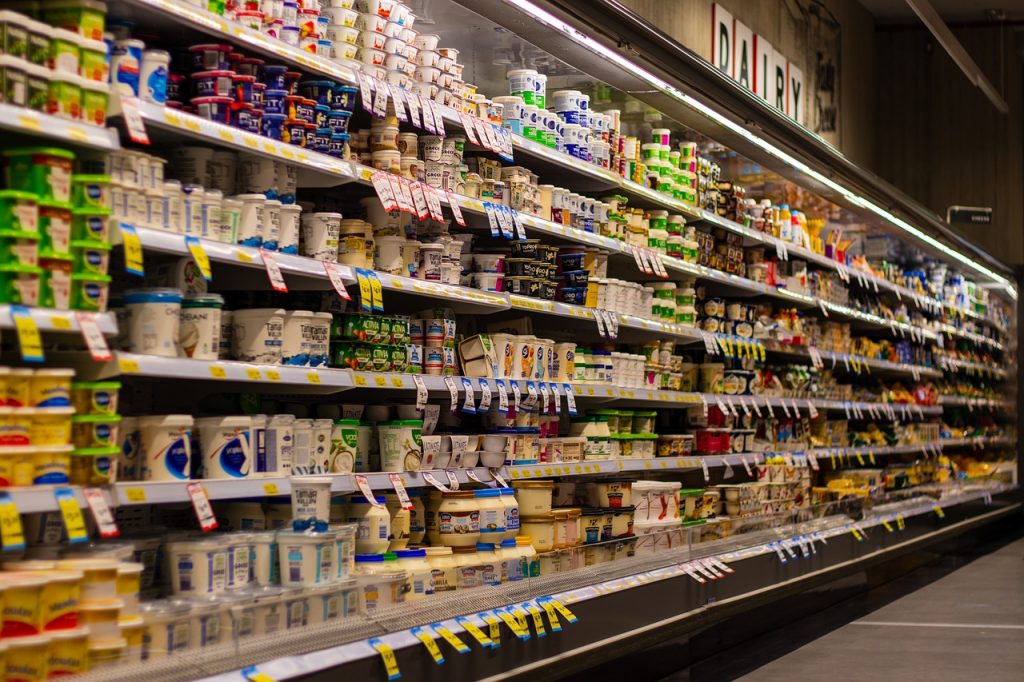Grocery Store Chains Are Amping Up Security, Here’s Why
Find out why grocery stores are heavily increasing security.
This article is more than 2 years old

Organized retail crime has been on the upswing nationwide, New York City has been one of the hardest hit by this concerning trend. Recently, two prominent grocery chains in New York City, Gristedes and D’Augustino’s, announced they were amping up security in their stores. According to ABC7, the decision came after the stores measured a staggering 15% uptick in theft over the past two years.
Employees who work at the stores said that the problem has become so prevalent that they have noticed customers nonchalantly walk into the business and then out with handfuls of items that they hadn’t paid for. The products that are swiped most often include things like Tide Laundry Detergent, fresh meat, and pints of ice cream. The Chairman and CEO of Gristedes and D’Agostino’s Supermarkets, John Catsimatidis, said in order to combat the growing shrinkage, “We are hiring more and more security.”
Catsimatidis continued to explain that “We are hiring a lot of retired cops. And the other thing we’re doing is we’re putting less in the meat cases, in other words, we replenish more often.” Employees have even taken it upon themselves to purposely put less on the shelves for other items that they observe to be in high demand for robbers. Both Catsimatidis and his employees across all 28 locations are hoping that the new measures and strategies being executed will help to deter would-be thieves from grabbing goods.

However, while the new grocery store security implementations might help the store and its employees, it might not bode well for its paying patrons. Hiring more personnel to make the stores more secure means that expenditures will increase. Hence, in order for Catsimatidis’ profit margins to stay stable, the CEO communicated that prices on all goods will likely have to rise. In a market already plagued with unprecedented inflation that would only serve to pose further financial challenges to New York City residents who are struggling to make ends meet. Not to mention, that even in periods where inflation is stable, food in New York City is far more expensive than in other areas of the country.
The 15% increase in theft at Gridtedes and D’Augustino’s falls in accordance with citywide rates. Data from an NYPD crime statistics report revealed that petit larceny has increased by 23.3% across all five boroughs in the two years since the onset of the pandemic. Product shortages as a result of supply chain logjams and stores running on skeleton crews because of prevailing worker shortages have served as ammunition for the vast increases in theft. Essentially, robbers are seeing a window of opportunity and taking advantage of a market that is currently operating under severe strain. Judging by the state of things it was right of Castimatidis to up both of his grocery store chains’ security.
Moreover, New York City is not the only place in the country where organized retail crime is becoming exceedingly prevalent, nor is what’s happening unique to grocery stores. Other retail companies are beefing up their security, too in response to the uptick in robberies. Best Buy’s CEO Corie Barry announced that his company was taking measures to address the same problem that is occurring in his stores. Barry expressed on a company call that something had to be done because “This is traumatizing for our associates and is unacceptable.”



